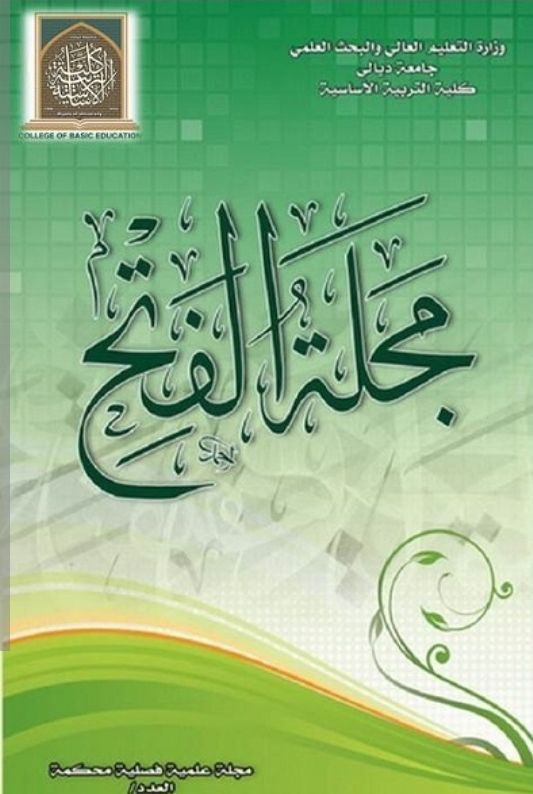الكرامة الإنسانية في القرآن الكريم
Keywords:
Dignity , Humanitarian, Islamic perspectiveAbstract
Abstract :
The principle of human dignity in Islamic conception
The emergence of Islamic Law (Sharia) has based on the principle of human dignity which Islamic law has guaranteed to human the being from the beginning of his creation. Islamic law has continued to support this principle by an educational approach strengthening its roots in the human soul; and by inserting this principle in its doctrine, ethics, and deeds with a balanced and integrated vision, that is compatible with its human descent nature and its gracious origin that is distinct from all the other creatures. That in order to protect human psyche from the material and moral humiliation, enhancing the pride within human soul by its slavery to God Almighty and establishing his divine approach. This principle empowers its authentic dimensions within the human soul and purifies it from its false aspects. That makes human dignity represents the bright image of human rights, legitimate duties, and an obvious vision of building a society that ensures value and importance for each individual.
The Islamic conception of the principle of human dignity has been an integrated conception of its primary and secondary components, including its physical and moral dimensions, fair in determining what is private and general among people, and balanced in establishing the aspects of psyche in a way that results in the development of human personality which has been the successor upon the land of God according to His legislative approach.
Depending on the importance of the principle of human dignity in achieving the human education, the research aims to consolidating this principle in the light of the Islamic perception by revealing its physical and moral dimensions, and its types according to the human-self to which it is related among the private and public.
References
المصادر :
-القرآن الكريم
- البخاري , محمد بن إسماعيل ) 1400هـ ) . الجامع الصحيح المسند من حديث رسول الله وسننه وأيامه , ت. محب الدين الخطيب , القاهرة : المكتبة السلفية .
- الرازي الشافعي , فخر الدين محمد (1421هـ) .التفسير الكبير , بيروت : دار الكتب العربية .
- الشنقيطي , محمد الأمين (1415هـ) . أضواء البيان في توضيح القرآن بالقرآن , بيروت: دار الفكر للنشر .
- العبادي , لأبي السعود محمد بن محمد (د.ت). إرشاد العقل السليم إلى مزايا القرآن الكريم, بيروت : دار احياء التراث .
- الغرناطي الكلبي , محمد أحمد (1403 هـ). التسهيل لعلوم التنزيل , بيروت : دار الكتب العربي .
- النيسابوري , مسلم بن الحجاج ( د.ت ) . صحيح مسلم , بيروت : دار إحياء , ت: محمد فؤاد عبد الباقي , كتاب الايمان , باب : بيان غلظ تحريم النميمة .
قائمة المراجع :
- سرسيق , إبراهيم محمد (د.ت ) . النفس الإنسانية في القرآن الكريم , جدة : تهامة.
- سعيد إسماعيل علي , محمد الحامد , عبد الرضى محمد (1426هـ). التربية الإسلامية المفهومات والتطبيقات , الرياض : مكتبة الرشد , ط2 .
- علي , سعيد إسماعيل (1426هـ ) . النزعة العقلية في الفكر التربوي الإسلامي , القاهرة: دار الكتب .
- قطب , سيد ( 1399هـ ) . في ظلال القرآن , بيروت : دار الشروق , ط8 .
- عبد الغني محمد , صلاح ( 1418هـ ) . وسائل الإسلام في المحافظة على كرامة المرأة, مكتبة الدار العربية .
-عويس , عبد الحليم (1427هـ) . إنسانيات الإسلام مبادئ شرعية وتجارب واقعية, الرياض: العبيكان للنشر .
- فودة , حمزة إبراهيم (1404هـ) . العلاقات الإنسانية في القرآن الكريم , ط2 .
- المرصفي , محمد علي (1403هـ ). من المبادئ التربوية في الإسلام , مكة المكرمة: عالم المعرفة .
- الهاشمي , عابد توفيق ( 1402هـ) . مدخل إلى التصور الإسلامي للإنسان والحياة , عمان: دار الفرقان .
Downloads
Published
How to Cite
Issue
Section
License
Copyright (c) 2016 مجلة الفتح

This work is licensed under a Creative Commons Attribution 4.0 International License.
حقوق النشر والترخيص
تطبق مجلة الفتح للبحوث التربوية والنفسية ترخيص CC BY (ترخيص Creative Commons Attribution 4.0 International). يسمح هذا الترخيص للمؤلفين بالاحتفاظ بملكية حقوق الطبع والنشر لأوراقهم. لكن هذا الترخيص يسمح لأي مستخدم بتنزيل المقالة وطباعتها واستخراجها وإعادة استخدامها وأرشفتها وتوزيعها ، طالما تم منح الائتمان المناسب للمؤلفين ومصدر العمل. يضمن الترخيص أن المقالة ستكون متاحة على نطاق واسع بقدر الإمكان وأن المقالة يمكن تضمينها في أي أرشيف علمي.
لمزيد من المعلومات، يرجى متابعة الرابط: https://creativecommons.org/licenses/by/4.0/.



